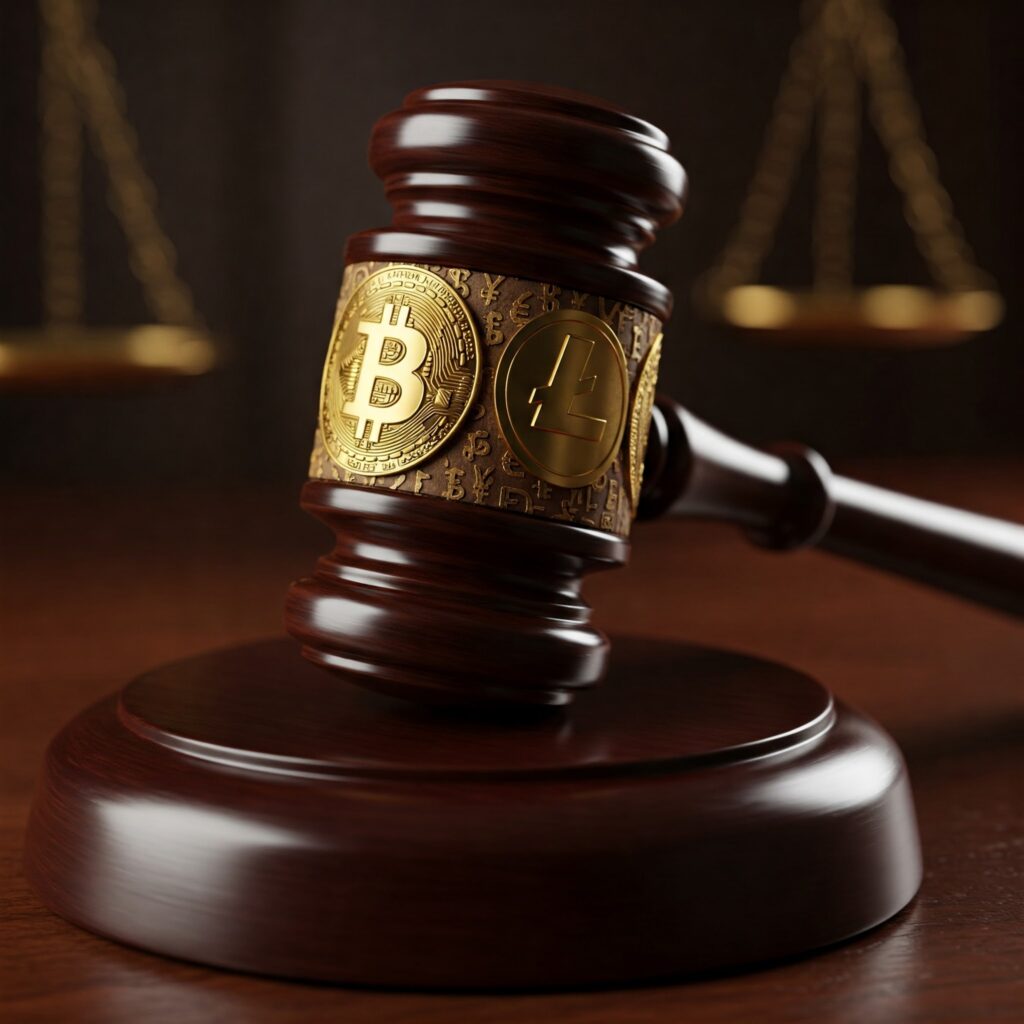introduction
The South Korean government is ramping up efforts to regulate the cryptocurrency sector, especially withSouth Korea Cracks Down & regards to exchanges suspected of operating without a license. The Financial Intelligence Unit (FIU) of the Financial Services Commission (FSC) has been investigating several international crypto exchanges, including KuCoin,https://www.kucoin.comKuCoin BitMEX, CoinW, Bitunix, and KCEX. The exchanges allegedly provided services to Korean users without registering under the Korean Specified Financial Information Act as Virtual Asset Service Providers (VASPs).
FIU Investigations and Potential Sanctions

Local media news agency Hankyung reported on March 21 that the FIU may impose penalties on these exchanges. The law requires any parties engaged in selling, safekeeping, and managing virtual assets to register as a VASP. Businesses that are not registered can face criminal penalties or administrative penalties, which may include fines or limitations on operations in South Korea. To enforce these laws, the FIU is coordinating with other government agencies, rethinking the appropriate response; one possibility is to block access to the identified exchanges. The FIU has reportedly discussed with the Korea Communications Standards Commission (KCSC), the agency that regulates internet laws, regarding how to implement an access restriction. This is a part of South Korea’s broader approach to limit cryptocurrency activity, ensuring transparency and protecting investors from risks. They are targeting unregistered exchanges to eliminate illegal financial activity, prevent money laundering, and create a safer trading environment for South Korean users.
Local Crypto Platforms Under Scrutiny

In addition to foreign exchanges, South Korean officials have stepped up investigations of cryptocurrency platforms located in their jurisdiction. On March 20, local prosecutors raided the office of Bithumb, one of South Korea’s largest cryptocurrency exchanges, after being alerted to alleged financial misconduct. The investigation is linked to allegations that Kim Dae-sik, former CEO of Bithumb, misappropriated company funds to buy an apartment. Prosecutors allege Kim may have used the company’s assets for his personal financial gain. Bithumb has denied the claims and provided the rationale that Kim obtained a loan in advance to purchase the apartment, and therefore no misconduct occurred. The raid of Bithumb appears to be part of a wider initiative by South Korean regulators to combat fraud in the South Korean cryptocurrency market, especially fraud related to the financial misconduct of key figures in the industry.
Allegations of Bribery in Crypto Listings

Currently, in South Korea’s cryptocurrency industry, another major point of scrutiny is the alleged bribery for token listings on prominent exchanges. Anonymous news sources alleged that some cryptocurrency projects were involved in paying significant sums to agents to ensure their tokens were listed on South Korean-based exchanges, particularly Bithumb and Upbit. These allegations led to speculation that some exchanges accepted kickbacks or participated in schemes when validating digital assets for trading. Upbit (the largest cryptocurrency exchange in South Korea) has addressed the bribery allegations by echoing a plea of transparency to the media outlets publishing the claims. Upbit claims that it has a rigorous and fair listing process for new tokens and if someone accused Upbit of bribery, then evidence must follow. If substantiated, such bribery allegations could have significant ramifications for South Korea’s cryptocurrency industry involving increased scrutiny, regulations, and investor confidence.
The Bigger Picture: South Korea’s Crypto Regulatory Crackdown

Recent regulatory action and investigations signal that South Korea is taking a more aggressive stance on crypto regulation. The government is already implementing several initiatives to ensure compliance with financial regulations, such as requiring crypto trading to be conducted through real-name bank accounts, and mandating VASPs to comply with anti-money laundering (AML) policies. By going after unregistered exchanges and investigating allegations of fraud and bribery, South Korea is indicating that it will not tolerate illegal conduct within the crypto space. These actions are part of a worldwide trend, where governments are pushing to establish clear regulatory frameworks for digital assets. For cryptocurrency users and businesses operating in South Korea, the developments reinforce the point that regulatory compliance has never been more important. Given that local authorities are ramping up oversight and making penalties stiffer, crypto companies must work to ensure they comply with local laws to minimize the risk of legal consequences.
Conclusion
South Korea’s FIU is strengthening its enforcement actions concerning unregistered foreign exchanges, while simultaneously investigating financial misconduct on local platforms. The investigation of Bithumb’s former CEO and allegations of bribery for token listings exemplify increasing police scrutiny of the country’s crypto market. As authorities tighten their grip on regulations, local and international crypto businesses operating in South Korea will have an even more difficult compliance environment. The outcome of such investigations could meaningfully influence the process and future of crypto regulation nationally and internationally.

